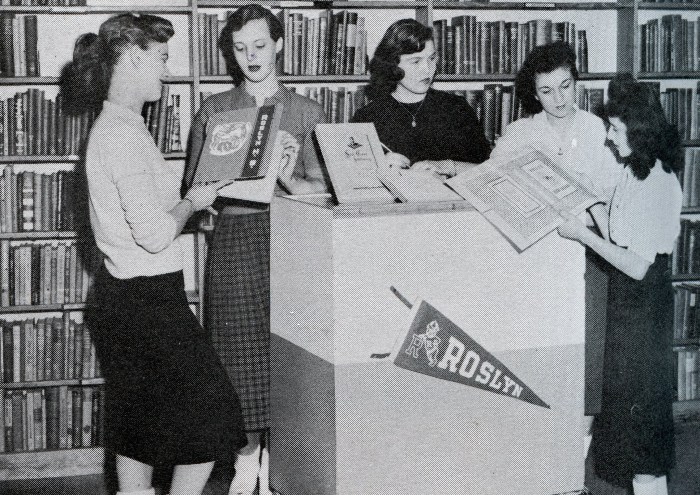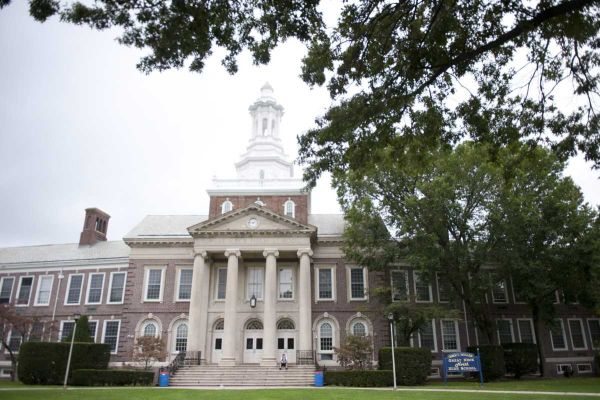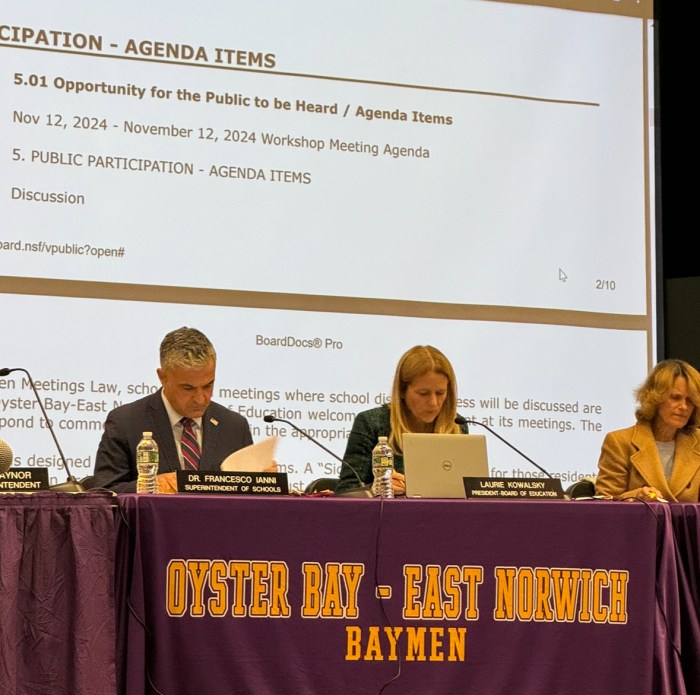Peer program’s friendships go beyond the library
 When Farmingdale Public Library Assistant Director Christa Lucarelli started the Peer Pal Program 14 years ago, its main purpose was to provide local special-needs kids with a way to grow accustomed to spending time in a library. Since that time, it’s evolved into a strong communal network in which special-needs kids, their parents and student volunteers can enjoy fun, interactive evenings that foster positive developments for all involved.
When Farmingdale Public Library Assistant Director Christa Lucarelli started the Peer Pal Program 14 years ago, its main purpose was to provide local special-needs kids with a way to grow accustomed to spending time in a library. Since that time, it’s evolved into a strong communal network in which special-needs kids, their parents and student volunteers can enjoy fun, interactive evenings that foster positive developments for all involved.
“On Monday nights, it was just for the special needs kids and their families,” said Lucarelli, whose son is a member of the program. “We would do storytime or play group. Then, three years ago, a couple of the parents asked for a buddy program. So that’s what I did. I asked typical teens to volunteer, and we had the special needs kids match up with them.”
The program, which meets Mondays from 7 to 8 p.m. at the Farmingdale Library, offers a wide array of activities, some of which include cooking, pet shows, karaoke, art therapy, parachute play, yoga, scooter races and movie nights, among others. Participants who don’t care for a particular activity are free to play board games or make crafts instead. Lucarelli, who receives help from librarian Victoria Curran, notes that the program’s impact reaches far beyond the library, as the bonds formed between the special-needs kids and their volunteer buddies often carries over into school and even social gatherings.

“What has happened is, my son wanted to have a movie party. He invited some of the kids over, and he also invited the typical buddies from [the library], and they came,” said Lucarelli. “They played pool outside, they watched the movie together, they ate dinner with them. They actually consider themselves friends. I think it’s good for all of them because a lot of these kids don’t really have typical friends. No one is really calling them up and saying, ‘Let’s hang out.’ They look forward to coming here.”
So committed are the volunteers that they came during spring break this year, while the program was on hiatus, to help Lucarelli plan the schedule of activities for the 2017-18 session. As vital as the program has been for kids with special needs, Lucarelli says, its proven instrumental in teaching its volunteers patience, acceptance and resourcefulness.
“I said to the [volunteers], ‘Why do you keep coming back to volunteer? This is your third year here.’ And they said, ‘Because it’s so much fun.’ So the volunteers are actually getting something out of it, too,” Lucarelli said. “They’re learning that, just because these kids have special needs, doesn’t mean they’re not capable of doing things.”
While the kids are enjoying the activities, many of the parents take the opportunity to stick around for the hour and mingle. Lucarelli can attest to the challenges that come with raising a child with special needs firsthand, and she believes that being part of a support group of parents in similar situations can only help matters.
“The parents hang out downstairs on the benches. That becomes their network,” Lucarelli said. “That’s how they find out what’s going on, they talk about what’s going on in school, teachers and programs. And they also make plans for their kids to do stuff together.”
Volunteers can range from sixth through 12th grade, and all attend Howitt Middle School or Farmingdale High School. Special-needs participants range in age from 5 to 21, with no proper age limit enforced. Students in the Farmingdale School District have priority, and students from other districts are welcomed in if there’s space still available—as of now, there are a few students from Massapequa and one from Bethpage. Lucarelli, though proud of what her program has meant to the Farmingdale community, wishes it were less unique—she’s unaware of any similar programs in surrounding communities, which makes it that much harder for her to reject anyone due to lack of space.
“There’s not enough programs for them to do. And something like this, that’s not being offered in the school or being offered anywhere else that I know of, I can’t turn them away. I would love for other towns to start doing it,” Lucarelli said, before reflecting on the amount of dedication that entails. “It is really time consuming. I don’t think anyone realizes how much goes into matching the kids up, so that their relationship carries out of this building. [That way], they see each other passing in the halls and they communicate. And that has worked.”






























